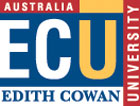Bachelor of Engineering (Petroleum Engineering) Honours
Bachelor of Engineering (Petroleum Engineering) Honours
Petroleum engineers work in a range of industry sectors, often related to the exploration, mining, production, delivery and downstream processing of fossil fuels. These fossil fuels are derived from oil and gas reservoirs in the earth’s crust, but may also include extraction from sands and shales. This course provides the…
Categories
COURSE DESCRIPTION
Petroleum engineers work in a range of industry sectors, often related to the exploration, mining, production, delivery and downstream processing of fossil fuels.
These fossil fuels are derived from oil and gas reservoirs in the earth’s crust, but may also include extraction from sands and shales. This course provides the foundations for a professional engineering career in the oil and gas industry, both in Australia and internationally. As well as providing core mechanical and chemical engineering skills, the course provides specialist knowledge in drilling, reservoir and petroleum production engineering.
The program focuses on the development of knowledge and skills relevant to professional engineering practice and along with a sound theoretical base, includes strong elements of practical problem solving, team work and project development. As a result, graduates will gain strong analytical skills, and have the ability to lead complex projects as well as having multiple technical and transferable skill competencies.
The course provides a sound basis in mechanics, mathematics, and the principles of engineering design in the first two years of study, along with core areas of engineering science including chemistry and materials science, fluid mechanics, process systems and thermodynamics. In the final two years of study, a range of more specialist petroleum engineering topics are covered to prepare students to enter their chosen profession with relevant knowledge and skills.
Course learning outcomes
Demonstrate advanced knowledge of the underpinning natural and physical sciences and in depth understanding of specialist bodies of knowledge within the Petroleum engineering discipline.
Think critically, and apply established engineering methods and research skills to complex petroleum engineering problem solving.
Apply systematic engineering synthesis and design processes to conduct and manage petroleum engineering projects, with some intellectual independence.
Demonstrate conceptual understanding of the mathematics, numerical analysis, statistics and computer and information sciences which underpin the petroleum engineering discipline and fluently apply engineering techniques, tools and resources.
Demonstrate clear and coherent oral and written communication in professional and lay domains.
Demonstrate a global outlook and knowledge of contextual factors impacting the engineering discipline, including respect for cultural diversity and indigenous cultural competence.
Demonstrate effective team membership and team leadership to implement engineering projects according to relevant standards of ethical conduct, sustainable practice and professional accountability.
Demonstrate responsibility for own learning, professional judgement and an understanding of the scope, principles, norms, accountabilities and bounds of contemporary engineering practice.
Career Opportunities
Petroleum engineers work in a wide range of industries associated with the exploration, drilling and mining, development and operation of production and transport of raw and processed products as well as the downstream processing of fossil fuel derivatives.
Possible future job titles
Petroleum Engineer, Oil and Gas Engineer, Exploration Engineer, Reservoir Engineer, Drilling Engineer, Pipeline Engineer, Refining Engineer, Production Engineer
REQUIREMENTS
There are various ways to meet our admission requirements, such as:
Secondary school results
Successful completion of one year of tertiary study from a recognised institution
Completed Diploma program from a recognised institution
English competency requirements:
IELTS Academic: An overall band minimum score of 6.0, with no individual band less than 6.0. (Results are typically valid for 2 years and online tests are not acceptable.)
TOEFL iBT: 70 (no individual score less than 17)
TOEFL Paper-Based Test (PBT): Minimum score of 550, including Test of Written English of 5 or better. (Results are typically valid for only 2 years.)
Pearson Test of English (PTE) Academic: 52, with no scores less than 50. (Results are typically valid for only two years.)
EDUCATIONAL INSTITUTION
Edith Cowan University (ECU) is a large, multi-campus institution serving communities in Western Australia and internationally.ECU was awarded university status in 1991, but despite its relative youth, the University has a proud history of more than a century of service to education in Western Australia and is recognised for its teaching and learning, excellence in research, and partnerships with the community.We have more than 23,300 students, including around 18,500 undergraduates and 4,800 postgraduates. Approximately 3,600 international students attend the University, originating from 104 countries.We are a progressive University with courses developed through ongoing industry input, and employing lecturers who engage fully with their students. We’re a university that knows while knowledge is important, understanding comes from experience –experience that enables you to adapt what you’ve learned to whatever opportunities come your way. Because that’s when you do more than just survive in this world. You thrive in it.




